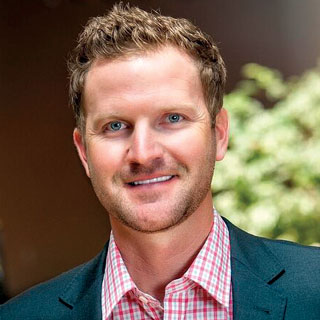
When I first began working in senior living, there weren’t memory-care-specific initiatives available. I quickly discovered that many seniors and their families had a negative perception of memory care.
I decided that in order to change the way people – including the residents themselves – felt about memory care, I needed to start with those delivering the care — the caregivers. Not long after that, I created the first training program for our staff that focused on what memory care residents could participate in, rather than what they could not.
That thought process revolutionized how I approached my job and caring for residents. Now in a corporate role, the lessons I learned when I was new to the industry have been invaluable to me, as they shape every aspect of how we care for residents, who we hire, the environment we create, and so much more.
After more than 10 years spent developing a way for memory care residents to truly feel engaged, uplifted and purposeful, I recently put pen to paper to create a program that will teach all Dominion Senior Living communities to deliver the best services to their memory care residents and families. The program is called Tapestry by Dominion Senior Living, a multi-level, holistic approach to serving seniors living with Alzheimer’s and other forms of dementia. We recently began training team members and rolling out the program in our communities in Johnson City and Sevierville, TN, and we will be implementing it at all new communities currently under construction.
As the name suggests, Tapestry weaves a resident’s life history, skills, interests and routine into a personalized program that is centered on what the residents have done in their lives and what they are still capable of doing. This is far different from many of the activity-based programs, which revolve around what the residents cannot do. By taking a person-centered care approach, we customize the program to maximize each resident’s independence.
We decided this program needed to provide guidelines for all areas that impact the memory care residents, so that care across all of our communities is consistent with our mission. For this reason, we put instructions in place for hiring, enhanced dining, music therapy, assessment training, resident history, mission-focused programing and wellness initiatives, to name a few.
In the new program, residents will come to be understood by the community instead of having the caregivers make decisions on their behalf. Each resident undergoes various assessments to build a service plan that is customized to that individual. We look at everything—from physical, cognitive, spiritual and social abilities to that resident’s preferences.
The most important part of our culture is the people, and if we want to try to duplicate our culture across all of our communities, we must identify what personality traits are required to ensure our vision is carried out. As we continue to grow, it is important to us that we have these non-negotiable standards so we don’t lose the quality we’ve worked so hard to create. We want the environment to weave together the full person — both residents and employees — into the culture of these senior living communities.
We make sure to carry out the Tapestry program in each and every task and interaction with memory care residents, focusing on maintaining the residents’ feeling of self-worth and individuality. This may be as simple as allowing the resident to select which type of juice he has with breakfast from a tray of options. Rather than being frustrated since he cannot vocalize preferences, the resident can take cues from the color or smell of the juice, and he can make his own selection. These memory cues can also come from music and activities the resident likes, and we keep track of those preferences in a family information document.
Our residents also participate in meaningful life enrichment activities, such as crafts, art and music therapy, as well as mission-related activities. We have found that when the residents understand there is a bigger purpose to the activity, they become more engaged. There truly is no limit to what they can do—we just subconsciously limit their abilities without knowing if they can truly participate. This is the mindset we must get out of, and why Tapestry was created.
While we have established a guide for our employees to follow, we know that each community will need to deviate in one way or another to find what works best for them. There isn’t a one-size-fits-all approach when it comes to people. You have to work with them using the best tools at your disposal, and the tools we’re providing for our staff members will help the residents far more than traditional memory care approaches. At its heart we’re asking, “How can we show high value and best honor God by serving this senior?” This is a unique philosophy at the center of a for-profit organization, but it is what drives all of us each and every day.
Josh Crisp is a vice president at Dominion Senior Living.




